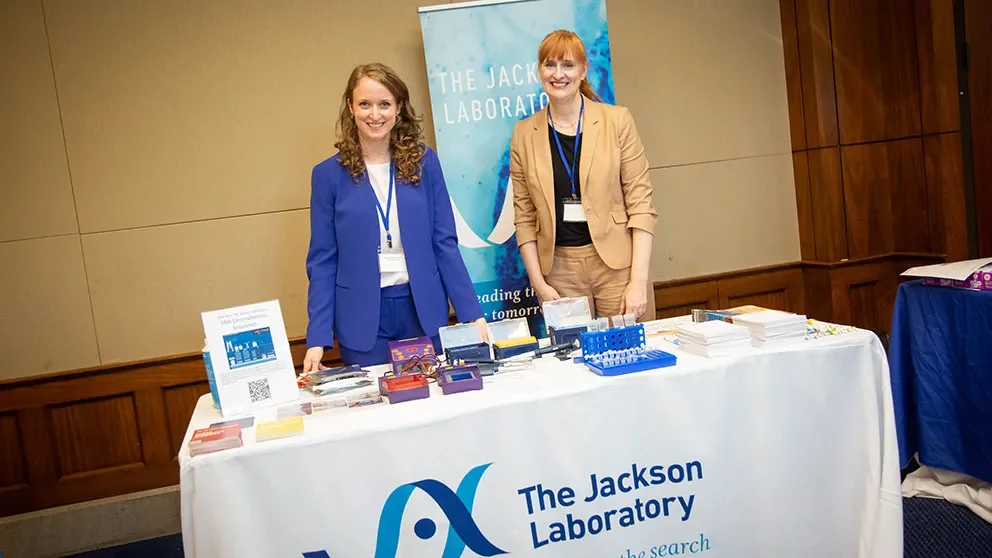Teaching the Genome Generation™ at the Congressional Life Sciences Fair
Blog Post
Genetics on Capitol Hill
The Jackson Laboratory had the unique opportunity to travel to Capitol Hill for the Congressional Life Sciences Fair on July 19, 2023. Hosted by the Coalition for Life Sciences and the Federation of American Societies for Experimental Biology
This year’s Fair was held in the Rayburn House Office Building, the first event since 2019 due to the COVID pandemic. JAX was one of 15 organizations participating, bringing interactive, hands-on experiments to congressional leaders and their staff. Over 100 people were in attendance, including staff from congressional offices and committees.
JAX chose to spotlight our Teaching the Genome Generation™
“I’ve spoken about TtGG during countless meetings over my six years at JAX,” shared Jill Homer Stewart, director of federal government relations, “but being able to demonstrate what teachers and students do in a lab was invaluable.”
The JAX table had a constant stream of visitors during the two-hour event. Notable guests included staff from our delegation offices of Representatives Jared Golden (D-ME) and Jahana Hayes (D-CT), and Senator Angus King (I-ME).
